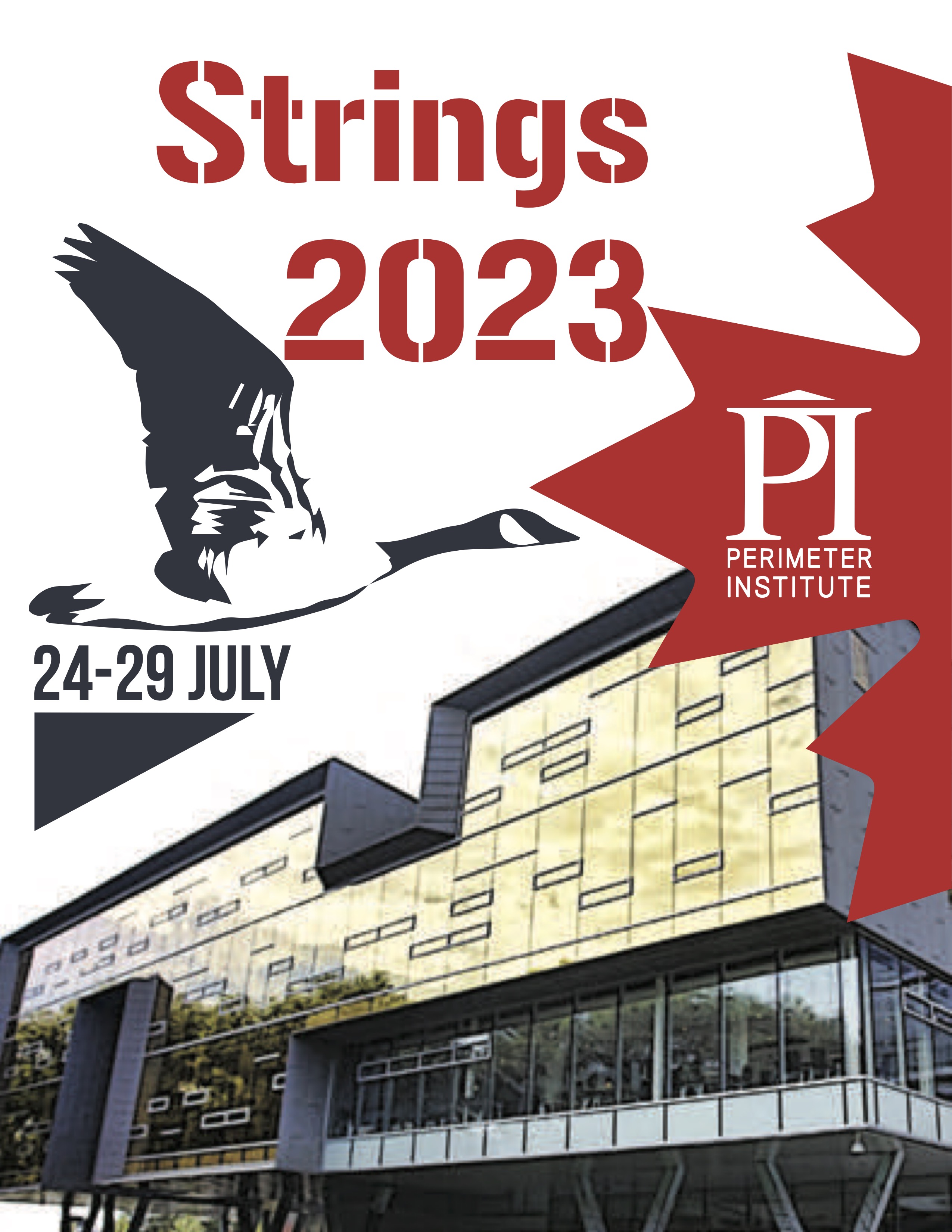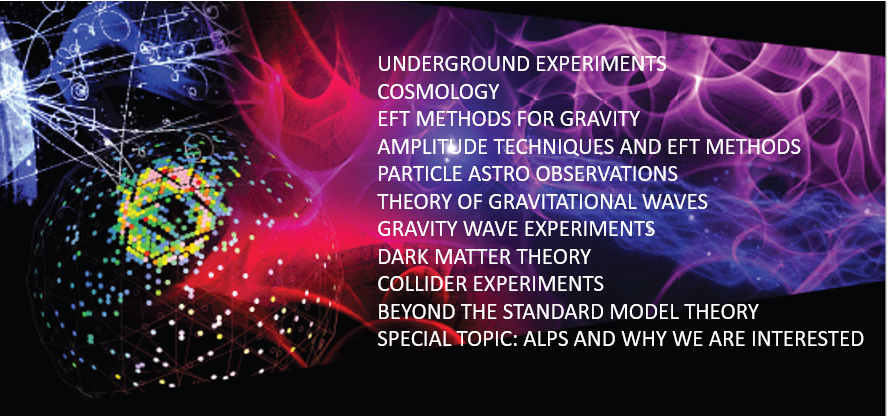Format results
-
Talk
-
Particle Physics Lecture
Junwu Huang Perimeter Institute for Theoretical Physics
-
Particle Physics Lecture
Junwu Huang Perimeter Institute for Theoretical Physics
-
Particle Physics Lecture
Junwu Huang Perimeter Institute for Theoretical Physics
-
Particle Physics Lecture
Junwu Huang Perimeter Institute for Theoretical Physics
-
Particle Physics Lecture
Junwu Huang Perimeter Institute for Theoretical Physics
-
Particle Physics Lecture
Junwu Huang Perimeter Institute for Theoretical Physics
-
-
-
-
Talk
-
QFT III Lecture
Mykola Semenyakin Perimeter Institute for Theoretical Physics
-
QFT III Lecture
Mykola Semenyakin Perimeter Institute for Theoretical Physics
-
QFT III Lecture
Mykola Semenyakin Perimeter Institute for Theoretical Physics
-
QFT III Lecture
Mykola Semenyakin Perimeter Institute for Theoretical Physics
-
QFT III Lecture
Mykola Semenyakin Perimeter Institute for Theoretical Physics
-
QFT III Lecture
Mykola Semenyakin Perimeter Institute for Theoretical Physics
-
QFT III Lecture
Mykola Semenyakin Perimeter Institute for Theoretical Physics
-
QFT III Lecture
Mykola Semenyakin Perimeter Institute for Theoretical Physics
-
-
Talk
-
-
Talk
-
-
Talk
-
Twisted Holography Mini-Course - Lecture 20231214
Davide Gaiotto Perimeter Institute for Theoretical Physics
-
Twisted Holography Mini-Course - Lecture 20231130
Davide Gaiotto Perimeter Institute for Theoretical Physics
-
Twisted Holography Mini-Course - Lecture 20231123
Davide Gaiotto Perimeter Institute for Theoretical Physics
-
Twisted Holography Mini-Course - Lecture 20231116
Kevin Costello Perimeter Institute for Theoretical Physics
-
Twisted Holography Mini-Course - Lecture 20231109
Kevin Costello Perimeter Institute for Theoretical Physics
-
Twisted Holography Mini-Course - Lecture 20231102
Kevin Costello Perimeter Institute for Theoretical Physics
-
-
Talk
-
3pt functions: Yes Q's
Pedro Vieira Perimeter Institute for Theoretical Physics
-
An explicit solution
Paul Ryan King's College London
-
QSC definition in N=4
Paul Ryan King's College London
-
Q-functions in spin chains. QSC for spin chains
Paul Ryan King's College London
-
3pt function: No Q's
Pedro Vieira Perimeter Institute for Theoretical Physics
-
-
Talk
-
-
Talk
-
Opening Remarks
Robert Myers Perimeter Institute for Theoretical Physics
-
-
Research Talk 2 - Burns holography
Atul Sharma Harvard University
-
Research Talk 3 - Swampland and a Unification of the Dark Sector
Cumrun Vafa Harvard University
-
Research Talk 4 - A universal pattern at infinite field distance
Irene Valenzuela -
-
Research Talk 5 - Crossing beyond scattering amplitudes
Hofie Hannesdottir -
-
-
Talk
-
-
Talk
-
-
Simulating one-dimensional quantum chromodynamics on a quantum computer: Real-time evolutions of tetra- and pentaquarks
Christine Muschik Institute for Quantum Computing (IQC)
-
-
Five short talks - see description for talk titles
-
Barbara Soda Perimeter Institute for Theoretical Physics
-
Dalila Pirvu Invisible Technologies
- Leonardo Solidoro, Pietro Smaniotto, Kate Brown
-
-
First observations of false vacuum decay in a BEC
Ian Moss Newcastle University
-
Building Quantum Simulators for QuFTs
Jorg Schmiedmayer Technical University of Vienna
-
-
-
-
Talk
-
Lecture 1: Introduction and Overview; Bootstrapping Ising mixed correlator
-
Ning Su Università di Pisa
- Aike Liu
-
-
-
-
Lecture 2: Bootstrapping global symmetries. Cutting surface algorithm
Ning Su Università di Pisa
-
-
-
-
-
-
Talk
-
-
Quantum Field Theory in Curved Spacetime (PM) - 2023-03-31
Sergey Sibiryakov McMaster University
-
Quantum Field Theory in Curved Spacetime (PM) - 2023-03-24
Sergey Sibiryakov McMaster University
-
Quantum Field Theory in Curved Spacetime (PM) - 2023-03-17
Sergey Sibiryakov McMaster University
-
Quantum Field Theory in Curved Spacetime (PM) - 2023-03-10
Sergey Sibiryakov McMaster University
-
Quantum Field Theory in Curved Spacetime (PM) - 2023-03-03
Sergey Sibiryakov McMaster University
-
Quantum Field Theory in Curved Spacetime (AM) - 2023-03-03
Sergey Sibiryakov McMaster University
-
-
Particle Physics
This course will cover phenomenological studies and experimental searches for new physics beyond the Standard Model, including: naturalness, extra dimension, supersymmetry, grand unification, dark matter candidates (WIMPs and axions) and their detection.
-
QFT III 2023/24
This survey course introduces some advanced topics in quantum field theory and string theory. Topics may include anomalies, conformal field theory, and bosonic string theory and are subject to change depending on the topics covered in the TBD elective course.
-
Standard Model 2023/24
The Standard Model of particle physics is introduced, and reviewed, from a modern effective field theory perspective.
-
Quantum Field Theory 2 2023/24
Quantum Field Theory 2 2023/24 -
Twisted Holography Mini-Course
This mini-course will introduce twisted holography, which is holography for BPS subsectors of gauge theory and gravity. We will start by introducing the B-model topological string from the space-time perspective, before discussing branes, backreaction, and the holographic duality.
Zoom: https://pitp.zoom.us/j/98839130613?pwd=SExFK0ZVYzJ3NmJhU1RFa21PWU1qQT09
-
Quantum Spectral Curve and Three Point Functions mini-course
In this mini-course we will describe some recent integrability developments in N=4 SYM. Pedro will start with some overview of three point functions in this theory. Paul will introduce the powerful Quantum Spectral Curve formalism describing the full planar spectrum of N=4 SYM starting with some elementary spin chain introduction. In this formalism, each operator in the theory is governed by a (set of) Q-function(s). In his last lecture Paul will walk us through an explicit example from beginning to end of a QSC solution. Pedro will then describe some explorations on three point correlation functions in this theory. The goal would be to have a machine where three Q-functions are given as input and a three-point function is spit out as output. We will describe where we are in this quest.
No Zoom link or hybrid participation available. Registration is not required.
-
Quantum Field Theory 1 2023/24
Quantum Field Theory 1 2023/24 -
Strings 2023
The Perimeter Institute for Theoretical Physics is delighted to host the 33rd installment of Strings, the flagship annual conference for the extended string theory community.
Strings 2023 will take place at PI July 24-29. Capacity is limited to 200 in-person attendees. The programming will incorporate an interactive simulcast for virtual attendees.Recorded talks: https://pirsa.org/C23001
Organizing Committee: Sabrina Pasterski,* Freddy Cachazo, Kevin Costello, Davide Gaiotto, Jaume Gomis, Rob Myers, Pedro Vieira, & Alex Buchel.
Territorial Land Acknowledgement
Perimeter Institute acknowledges that it is situated on the traditional territory of the Anishinaabe, Haudenosaunee, and Neutral peoples.
Perimeter Institute is located on the Haldimand Tract. After the American Revolution, the tract was granted by the British to the Six Nations of the Grand River and the Mississaugas of the Credit First Nation as compensation for their role in the war and for the loss of their traditional lands in upstate New York. Of the 950,000 acres granted to the Haudenosaunee, less than 5 percent remains Six Nations land. Only 6,100 acres remain Mississaugas of the Credit land.
-
TRISEP 2023
Talks are recorded and posted on PIRSA (within approx 24 hours).
The 2023 Tri-Institute Summer School on Elementary Particles (TRISEP) will be held June 19-30, 2023 in Perimeter Institute for Theoretical Physics, Waterloo, ON, Canada.
TRISEP is an international summer school organized jointly by the Perimeter Institute for Theoretical Physics, SNOLAB, and TRIUMF Canada's laboratory for particle and nuclear physics. TRISEP will feature lectures by leading experts in the field of particle physics in its broadest sense and is designed to be very interactive with ample time for questions, discussions and interaction with the speakers. The school is intended for graduate students of all levels who were already exposed to quantum field theory.Registration for in person attendance to TRISEP is now open. Anyone requiring financial assistance to attend must apply by May 19. Requests for financial assistance are vetted on a case-by-case basis and application for funding is not guaranteed.
Previous TRISEP Schools:
2022, 2021, 2019, 2018, 2017, 2016, 2015, 2014 and 2013.
Territorial Land AcknowledgementPerimeter Institute acknowledges that it is situated on the traditional territory of the Anishinaabe, Haudenosaunee, and Neutral peoples.
Perimeter Institute is located on the Haldimand Tract. After the American Revolution, the tract was granted by the British to the Six Nations of the Grand River and the Mississaugas of the Credit First Nation as compensation for their role in the war and for the loss of their traditional lands in upstate New York. Of the 950,000 acres granted to the Haudenosaunee, less than 5 percent remains Six Nations land. Only 6,100 acres remain Mississaugas of the Credit land.
We thank the Anishinaabe, Haudenosaunee, and Neutral peoples for hosting us on their land.
-
Quantum Simulators of Fundamental Physics
This meeting will bring together researchers from the quantum technology, atomic physics, and fundamental physics communities to discuss how quantum simulation can be used to gain new insight into the physics of black holes and the early Universe. The core program of the workshop is intended to deepen collaboration between the UK-based Quantum Simulators for Fundamental Physics (QSimFP; https://www.qsimfp.org) consortium and researchers at Perimeter Institute and neighbouring institutions. The week-long conference will consist of broadly-accessible talks on work within the consortium and work within the broader community of researchers interested in quantum simulation, as well as a poster session and ample time for discussion and collaboration
Territorial Land AcknowledgementPerimeter Institute acknowledges that it is situated on the traditional territory of the Anishinaabe, Haudenosaunee, and Neutral peoples.
Perimeter Institute is located on the Haldimand Tract. After the American Revolution, the tract was granted by the British to the Six Nations of the Grand River and the Mississaugas of the Credit First Nation as compensation for their role in the war and for the loss of their traditional lands in upstate New York. Of the 950,000 acres granted to the Haudenosaunee, less than 5 percent remains Six Nations land. Only 6,100 acres remain Mississaugas of the Credit land.
We thank the Anishinaabe, Haudenosaunee, and Neutral peoples for hosting us on their land.
-
Mini-Course of Numerical Conformal Bootstrap
This school will be an advanced course on the numerical bootstrap. In the lectures, we will discuss advanced theoretical aspects of numerical bootstrap and algorithms. In the tutorials, we will demonstrate how to use simpleboot/hyperion and help the participants to run bootstrap computation on their own clusters. Main examples are 3D Ising, O(2), O(3), Gross-Neveu-Yukawa CFTs.
The school will consist of one lecture in the morning and two tutorials in the afternoon (one tutorial for simpleboot (by Ning Su) and another one for hyperion (by Aike Liu).
Course materials, including tutorials, slides, and sample codes, can be found at https://gitlab.com/AikeLiu/Bootstrap-Mini-Course
This event is supported by the Simons Collaboration on The Nonperturbative Bootstrap (https://bootstrapcollaboration.com/).
Territorial Land Acknowledgement
Perimeter Institute acknowledges that it is situated on the traditional territory of the Anishinaabe, Haudenosaunee, and Neutral peoples.
Perimeter Institute is located on the Haldimand Tract. After the American Revolution, the tract was granted by the British to the Six Nations of the Grand River and the Mississaugas of the Credit First Nation as compensation for their role in the war and for the loss of their traditional lands in upstate New York. Of the 950,000 acres granted to the Haudenosaunee, less than 5 percent remains Six Nations land. Only 6,100 acres remain Mississaugas of the Credit land.
We thank the Anishinaabe, Haudenosaunee, and Neutral peoples for hosting us on their land.
-
Quantum Field Theory in Curved Spacetime
The course is an introduction to quantum field theory in curved spacetime. Upon building up the general formalism, the latter is applied to several topics in the modern theory of gravity and cosmology where the quantum properties of fundamental fields play an essential role.
Topics to be covered:
1) Radiation of particles by moving mirrors
2) Hawking radiation of black holes
3) Production of primordial density perturbations and gravity waves during inflation
4) Statistical properties of the primordial spectra
Required prior knowledge:
Foundations of quantum mechanics and general relativity


